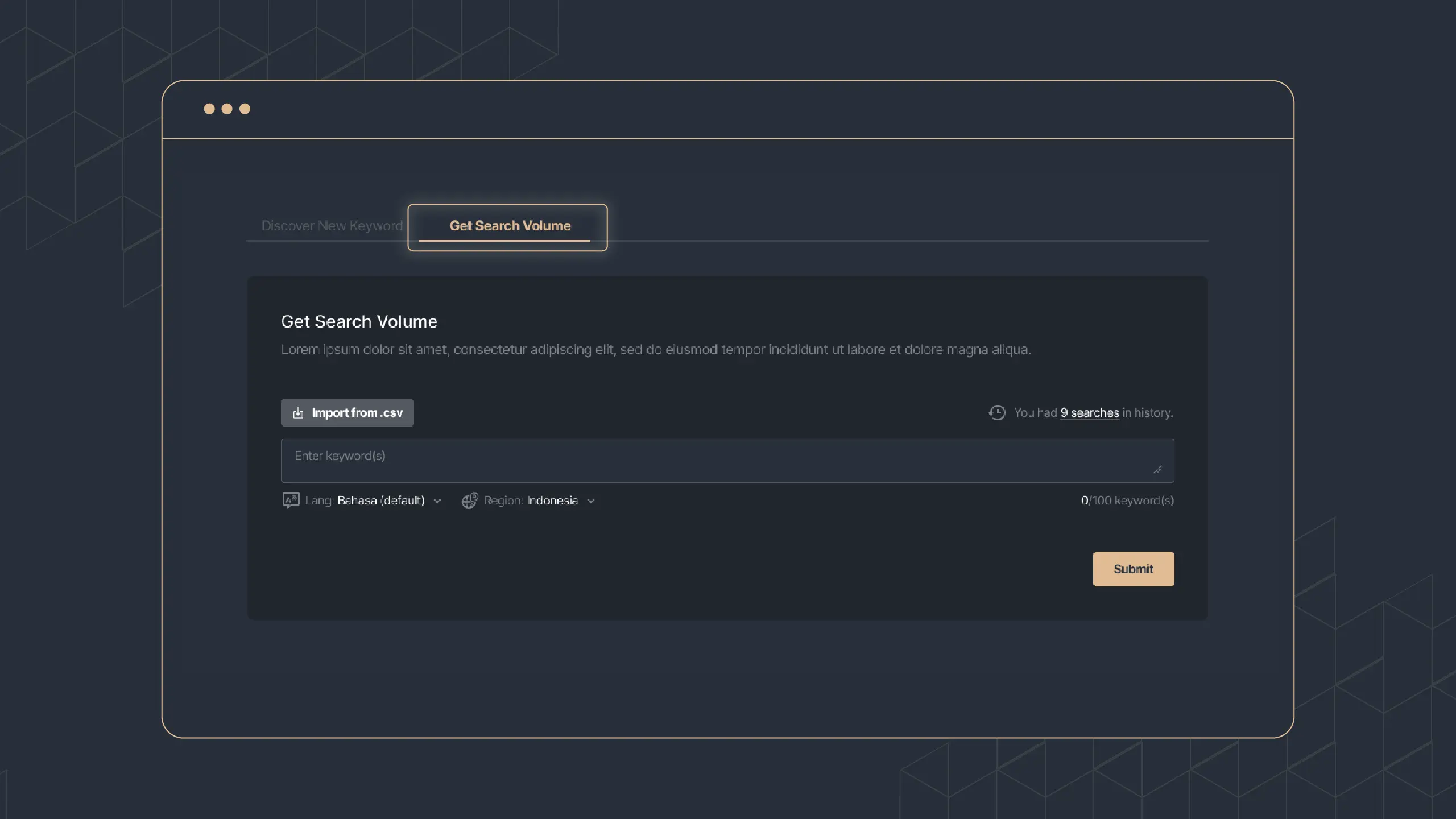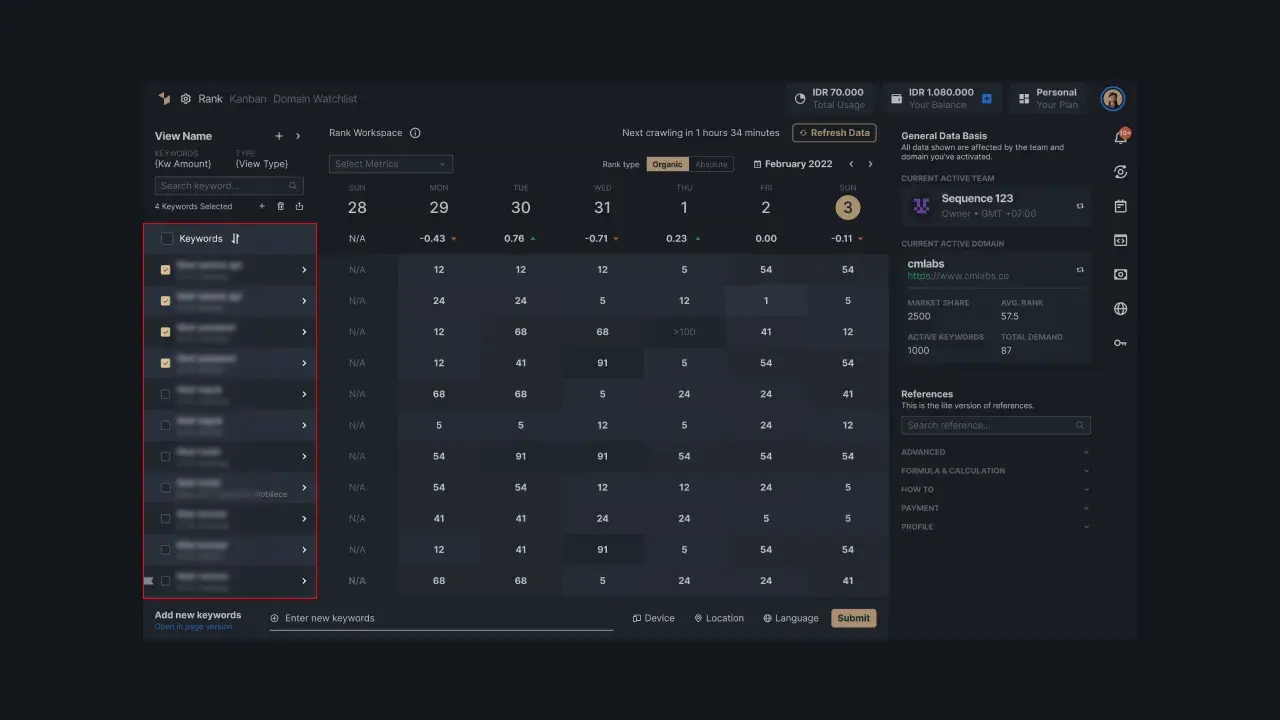SEO Keyword Research Tactics for A More Targeted Content
Content creation has become a crucial aspect of online success. To create content that precisely targets your audience, it is needed to conduct SEO keyword research thoroughly.
Within this article, we will uncover the tactics of SEO keyword research as the beginning of crafting SEO content. We will also guide you in using the right tool for this activity.
SEO Keyword Research Role
At its core, SEO keyword research involves the process of identifying and analyzing the specific words and phrases that people use in search engines.
Keywords serve as the bridge between what users are searching for and the content that websites provide. They act as the language that connects searchers with relevant information. Here are some important roles of keywords:
- Increase relevance and ranking
- Drive organic traffic
- Match user intent
How Search Engines Interpret Keywords
Search engines employ sophisticated algorithms to interpret and understand the meaning behind keywords and deliver relevant search results. Here are some key aspects of how search engines interpret keywords:
- Contextual Understanding: Search engines have evolved to go beyond the exact match of keywords. They now focus on contextual understanding, which involves assessing the overall content on a webpage to determine its relevance to a particular keyword or search query. This includes analyzing related terms, synonyms, and co-occurring words.
- User Behavior Signals: Search engines analyze user behavior signals, such as click-through rates (CTRs), bounce rates, and dwell time, to gauge the relevance and quality of search results. By observing how users interact with different search results, search engines refine their understanding of keyword intent and continuously improve result accuracy.
- Natural Language Processing: Search engines utilize natural language processing (NLP) techniques to elaborate user queries and match them with relevant content. NLP enables search engines to understand the context, sentiment, and semantic meaning behind search queries.
SEO Keyword Research Tactics
After understanding the importance of SEO keyword research and how search engine process it, you have to have tactics to make sure the keyword you target can perform well. Here are the suggested tactics to begin with.
Setting Goals for Targeted Content
Setting goals for targeted content is a crucial step in effective SEO keyword research tactics. By defining your objectives, you can align your content creation efforts with specific outcomes.
Whether your goal is to increase brand awareness, drive website traffic, generate leads, or boost conversions, having clear goals will guide your keyword research and content strategy in a more focused and purposeful direction.
Conducting Keyword Research Using The Right Tool
To conduct SEO keyword research, it is impossible to only monitor the SERP. You need a tool to tell you important keyword metrics. You can use the free Keyword Research Tool and analyze the results.
Go to the page and input your topic into the field provided. From here, the system will show you the keyword result you can choose.
 |
|---|
| Picture 1: Free keyword research tool to generate keyword ideas. |
Next, you will need to analyze the keywords based on important metrics such as search volume, competition, and other factors. Or, if you have the list of keywords, you can get the search volume data and then download it through the Get Search Volume.
 |
|---|
| Picture 2: Get the search volume data from your keyword list. |
With this data, you can have insight into what keywords you should target and predict its performance.
Prioritizing and Selecting Targeted Keywords
The next tactic is to prioritize the selected keywords. When prioritizing and selecting targeted keywords, it's essential to identify the most valuable ones for your content. Consider the following factors:
- Relevance to Your Content: Choose keywords that closely align with the main focus and theme of your content
- Audience Intent and Needs: Understand the intent behind the keywords and whether they align with the needs and expectations of your target audience.
- Conversion Potential: Evaluate the conversion potential of keywords. Determine if they are likely to attract visitors who are more likely to convert into customers or take the desired action on your website.
That is why, you need to find the right balance between competitiveness and search volume when selecting targeted keywords.
Generating Keyword Ideas
Relying on the seed keywords only is not enough, thus you need to have more keyword ideas to make your content richer. When embarking on SEO keyword research, one of the initial steps is brainstorming relevant topics and themes that align with your content goals.
You can get more keyword ideas from everywhere, including your competitors. Analyzing competitor keywords can provide valuable insights and inspiration for your own keyword research. This step is also a part of competitive analysis to beat your competitors.
If you have set your competitors, monitor their keywords using Domain Watchlist in Sequence Stats will help you know their top keywords and pages. This way, you know the gap and the next strategy to outperform them.
Monitoring Keywords
Monitoring keyword performance and metrics is essential in SEO keyword research to evaluate the effectiveness of your keyword strategy and optimize your content for better results.
Obtain the ranking data using Keyword Rank Tracker to refine your keyword strategy and optimize your content for improved results. Analyzing keyword performance data can reveal new keyword opportunities that align with your content and audience.
 |
|---|
| Picture 3: Keyword Ranking Tracker by Sequence Stats. |
Conclusion
In conclusion, having strategic tactics for SEO keyword research is important to build more targeted content. With a well-executed research strategy, you can create targeted and compelling content that drives organic traffic, engages your audience, and helps you achieve your business objectives in the digital landscape.
Try our free Keyword Research Tool to help you with gathering the data.